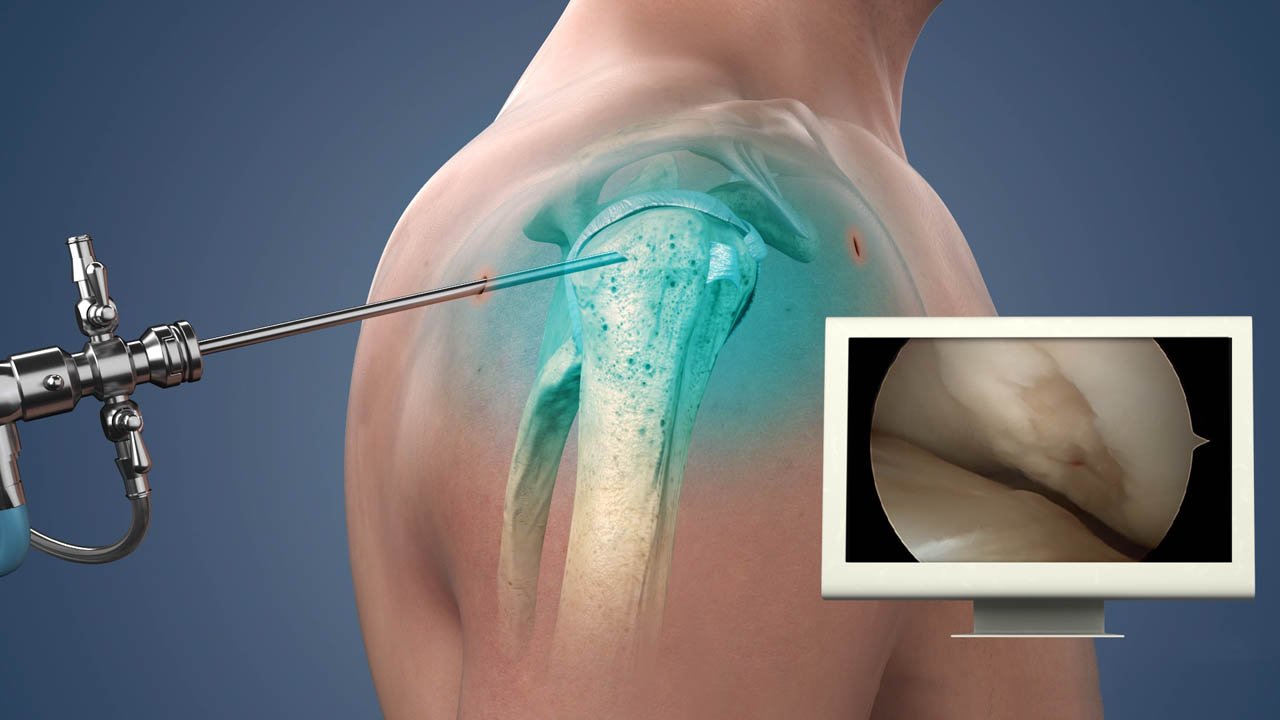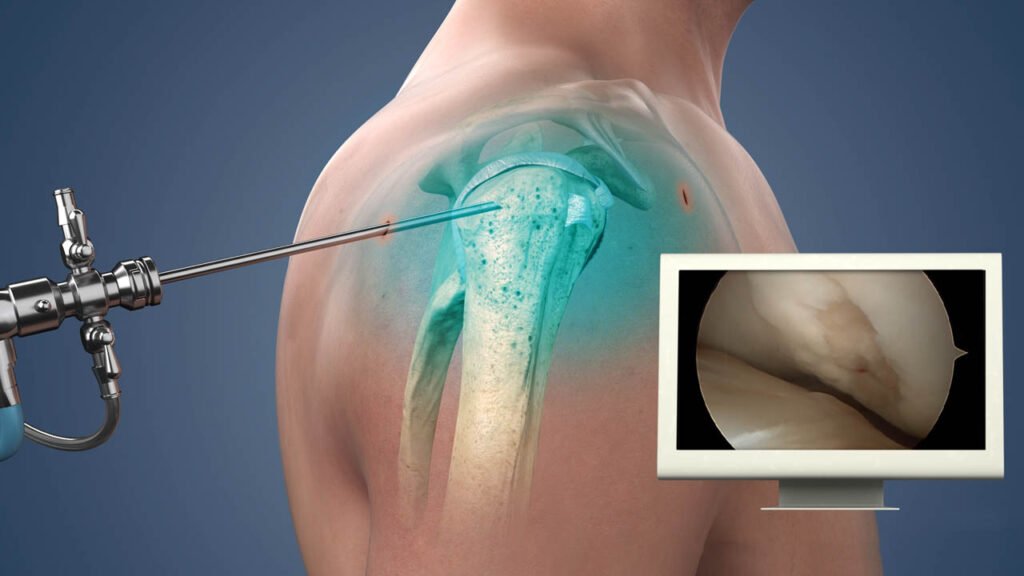Shoulder surgery is a critical procedure for addressing various shoulder conditions that affect mobility, comfort, and overall quality of life. Residents of Rajendra Nagar, Ghaziabad, have access to advanced shoulder surgical treatments thanks to the presence of specialized clinics and experienced surgeons like Dr. Bhavishya Handa. Shoulder Surgery in Rajendra Nagar Ghaziabad is performed using the latest techniques and technology to ensure optimal patient outcomes. This article explores the types of shoulder surgeries, indications, procedures, recovery, and why choosing the right surgeon is crucial for optimal outcomes.
Understanding Shoulder Surgery
Shoulder surgery encompasses various procedures aimed at treating injuries and conditions affecting the shoulder joint, including the rotator cuff, labrum, and surrounding structures. The shoulder is a highly mobile joint, making it susceptible to injuries and degenerative changes. Common shoulder surgeries include:
- Rotator Cuff Repair: This procedure addresses tears in the rotator cuff tendons, which are crucial for shoulder movement and stability.
- Shoulder Arthroscopy: A minimally invasive technique used to diagnose and treat various shoulder conditions such as impingement syndrome, labral tears, and arthritis.
- Shoulder Replacement: Involves replacing damaged parts of the shoulder joint with artificial components, often used for severe arthritis or fractures.
- Labral Repair: Fixes tears in the labrum, the cartilage that surrounds the shoulder socket, often caused by trauma or repetitive motions.
- Fracture Repair: Involves realigning and stabilizing broken shoulder bones, often with plates, screws, or rods.
Indications for Shoulder Surgery
Shoulder surgery is typically considered when conservative treatments such as physical therapy, medications, and injections fail to alleviate symptoms. Common indications include:
- Chronic Pain: Persistent pain that interferes with daily activities and does not respond to non-surgical treatments.
- Limited Mobility: Significant reduction in shoulder movement due to structural damage or inflammation.
- Instability: Recurrent shoulder dislocations or a feeling of the shoulder slipping out of place.
- Severe Arthritis: Advanced arthritis causing joint damage and pain, often requiring joint replacement.
- Acute Injuries: Severe injuries such as fractures, rotator cuff tears, and labral tears that necessitate surgical intervention.
The Surgical Procedure
Pre-Operative Assessment
A thorough pre-operative evaluation is essential to ensure the patient is fit for surgery. This includes:
- Medical History and Physical Examination: Assessing overall health and identifying any potential risk factors.
- Imaging Studies: X-rays, MRI, or CT scans to evaluate the extent of shoulder damage and plan the surgery.
- Consultation: Discuss the surgical plan, potential risks, benefits, and recovery process with the patient.
The Surgery
- Anesthesia: General anesthesia or regional anesthesia (nerve block) is administered to ensure the patient is pain-free during the procedure.
- Incision and Access: For arthroscopic surgery, small incisions are made to insert a camera and surgical instruments. For open surgery, a larger incision is made to access the shoulder joint.
- Repair or Replacement: The damaged structures are repaired or replaced. In rotator cuff repair, torn tendons are reattached to the bone. In shoulder replacement, damaged joint surfaces are replaced with prosthetic components.
- Closure: Incisions are closed with sutures or staples, and the shoulder is bandaged.
Post-Operative Care
- Recovery Room: After surgery, patients are monitored in the recovery room until the anesthesia wears off.
- Pain Management: Pain relievers and anti-inflammatory medications are prescribed to manage post-operative pain.
- Physical Therapy: A crucial part of recovery, involving exercises to restore mobility, strength, and function.
- Follow-Up Appointments: Regular follow-ups to monitor healing and progress.
Recovery and Rehabilitation
Recovery from shoulder surgery varies depending on the type of surgery and the individual patient. General recovery guidelines include:
- Immobilization: A sling or brace may be used to immobilize the shoulder for a few weeks.
- Gradual Movement: Physical therapy begins with gentle range-of-motion exercises, progressing to strength training and functional activities.
- Avoiding Strain: Avoid heavy lifting, overhead activities, and strenuous exercises during the initial recovery phase.
- Full Recovery: Most patients achieve significant improvement in pain and function within 3 to 6 months, though complete recovery may take up to a year.
Choosing the Right Surgeon in Rajendra Nagar, Ghaziabad
Selecting an experienced and skilled surgeon is vital for successful shoulder surgery outcomes. Key considerations include:
- Qualifications and Experience: Ensure the surgeon is board-certified and has extensive experience in performing shoulder surgeries.
- Reputation: Look for positive patient reviews and testimonials.
- Advanced Facilities: Choose a clinic equipped with the latest technology and a multidisciplinary team for comprehensive care.
- Personalized Approach: A good surgeon will provide personalized treatment plans and take the time to address patient concerns.
Why Choose Dr. Bhavishya Handa
Dr. Bhavishya Handa is a renowned orthopedic surgeon specializing in shoulder surgery in Rajendra Nagar, Ghaziabad. Here’s why he stands out:
- Expertise: Dr. Handa has extensive experience in performing complex shoulder surgeries with a high success rate.
- Patient-Centered Care: He is known for his compassionate approach, ensuring each patient receives personalized attention and care.
- State-of-the-Art Facility: Dr. Handa’s clinic is equipped with the latest technology for accurate diagnosis and effective treatment.
- Comprehensive Services: From initial consultation to post-operative care, Dr. Handa provides a seamless and supportive patient experience.
Conclusion
Shoulder surgery is a crucial intervention for individuals suffering from chronic shoulder pain, limited mobility, and other related conditions. In Rajendra Nagar, Ghaziabad, residents can rely on the expertise of Dr. Bhavishya Handa for high-quality shoulder surgical care. Shoulder Surgery in Rajendra Nagar Ghaziabad is performed with a focus on patient-specific needs and advanced medical practices. By understanding the types of shoulder surgeries, indications, procedures, and recovery processes, patients can make informed decisions about their treatment. If you are experiencing shoulder issues, don’t hesitate to seek a consultation with Dr. Handa to explore the best surgical options for restoring your shoulder health and improving your quality of life.
For further inquiries about Orthopaedic, please visit drbhavishyahanda.com and also follow us on Instagram



